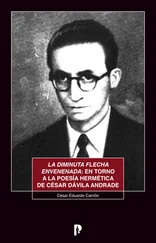The thunderous roar of this demolition had still not ceased when there rose from the wreckage — one could say from the earth itself — a chorus of sighs and groans that had an electronic rather than a human timbre. That’s when the guard saw the first dead walking out of the nearest vaults. And it wasn’t two or three or even ten or twenty: it was all of them. They appeared out of tombs, crypts, vaults; they literally rose out of the ground, an invasion, legions of them, coming from every direction. Their first steps were shaky. They looked like they were about to fall but then straightened up and took one step, then another, waving their arms about, moving their legs awkwardly and stiffly, as if they were marching in place, lifting their knees up too high, then letting their feet fall any which way, as if even the laws of gravity were new to them. But they were all walking, and there were so many of them that when they reached the pathways, they crashed into one another, their arms and legs got tangled up, and for moments they formed compact groups that shook in unison and separated with violent stumbles.
This lack of coordination was understandable after awakening from a long immobilized sleep, especially since each sleep had lasted a different length of time. They all looked too tall, as if they’d grown while dead, which surely contributed to their clumsiness. No two were the same, except in how horrible they were, in the conventional way corpses are horrible: shards of greenish skin, bearded skulls, remnants of eyes shining in bony sockets, sullied shrouds. And groans, both hoarse and shrill, every time they breathed.
The first victim was the guard. This civil servant with long years of experience had never seen anything like this, but he didn’t just stand there watching the show. Once he realized what was going on, he made an about-face and took off running. Looking back, he saw the dense crowd of corpses with creaking bones and cartilage pressing down the side corridors of the walls of niches, while others were still climbing down from the top-most niches like “the spider dead,” otherworldly greyhounds oozing slime. There, the rooftops shaded the moon, but a silvery phosphorescence emanating from the bones lit up the scene, making the tiniest details sharp, all in ghostly black and white. The guard didn’t hang around to observe the details. He ran across the atrium, and when he reached the fence railings, he remembered that a few hours earlier he himself had wrapped the thick chains around the heavy gates and closed the padlock. Damn security! The keys were hanging on the wall of his office, so he took off in that direction after deciding against the facing door, which was the entrance to the chapel (even though he was already placing himself at the mercy of all the saints). Luckily, the office had metal doors, and luckily he arrived there before the corpses, who were already marching through the atrium. He got a jump on them thanks to how slowly they were going, that there were so many of them, and that in their hurry they were getting in each others’ way. How many dead were there in the Cemetery? Thousands, maybe tens of thousands. Nobody had ever bothered to count up the entries in the register, those handwritten manuscripts that had sat for a hundred years in the archives. And they were all moving en masse toward the door, without any coordination, like water flowing toward the drain.
He locked the door and called the police. He shouted hysterically into the telephone. With an astuteness that was not wholly his own but rather dictated by urgency and instinct, he realized that it would be imprudent to go into too much detail, which would only lead to an interpretation based on his hard-earned fame as a drunk. It was enough to report the bare minimum and let his shouts and desperation speak for themselves. Moreover, a minimum of information — as minimum as possible — would instill more curiosity and help would arrive sooner. Still holding the phone, he began to hear the banging on the door. The bulk of the dead hoard kept going straight ahead — he heard the large iron gates swing open and crash to the ground. Apparently, no door could stop them. The one protecting him bulged and cracked; it wasn’t mere physical strength they used to force it open, but rather a kind of destructive will. The dead bolt flew off and in they came: tall, resolute, looking at him, and groaning. There were several of them; they seemed to be racing to reach him — his terrified and infinite paralysis. They moved like insects or ostriches. More than groans, the sounds they emitted were like the snorting of a dog sniffing his prey. One of them, the winner, fell on him with an expression on its face that suddenly (his last “suddenly”) looked like a smile of triumph. It took his head in both hands — bones poorly gloved with strips of purple flesh — and brought its horrendous mug up to his right temple. It handled him with ease; either terror had paralyzed the victim or the attacker emanated some magnetic substance of fatalism and surrender; in either case resistance was futile. In one mouthful it removed a chunk of the man’s skull — which broke off with an ominous “clack” and was left to hang off his right shoulder — then sunk its teeth into his brain. But it didn’t eat the brain, though it could have, and it seemed like it was going to. With one slurping action both delicate and very strong, it consumed the endorphins in the cortex and the brain stem to the very last drop. After which, it pulled away its face — if you could call that a face — and raised it toward the ceiling, letting out a super-shrill snort as it released the guard’s body, which fell lifeless to the ground. The others had already left: they must have known that this thirsty beast would not leave them even one endorphin. Once it had had its fill, it followed the others out.
The living dead continued to pour through the iron gate, spilling out onto the road leading toward town. Always pressing forward, their goose steps modified by a thousand limps, they were drawn in a tremendous hurry to the yellowish light in the sky above Pringles. The column remained compact during the first stretch, with some platoon leaders out in front and others fanning out in the rear; it looked more like a column than a triangle, the point of the arrow aimed at a Pringles oblivious to the danger, celebrating its Saturday night.
But the formation did not hold beyond the immediate access road to the Cemetery, where there was open country on either side. As soon as they reached the first houses, eager platoons turned off to one side or the other. The inhabitants of these modest houses were sleeping, many of whom didn’t even wake up when their doors and windows came crashing down, and those who did only had time to see, or to guess at through the darkness, the nightmarish bogeymen who leaned over their beds and opened their skulls with one bite. No house was spared, nor a single occupant therein, not even the babies in their cribs. Immediately after completing the cerebral suction, the corpses left and rejoined the cadaverous march, always in the direction of town.
As they advanced, the terrain became more densely populated. Neighborhoods alternated with clusters of ranches and solitary houses, which the detachments swept through exhaustively. Although the populated areas also stretched out laterally, the dead were satisfied with what they found right next to the road, to which they returned once their attacks were accomplished. They didn’t spend too much time on what they must have considered mere distractions. The important objective was the town, where the density of human material promised a much easier and readier harvest.
Not everyone was sleeping in all the houses they attacked. In some, they were still sitting around the dinner table when they were paid the unexpected “visit.” In those cases, screams and horrified expressions were plentiful, as were escape attempts that were never successful because the intruders came in through all the doors and windows at the same time. Nor did it do them any good to lock themselves in a room, but at least it gave some of them time to make an interrupted call to the police, calls that grew more and more frequent as the minutes passed and that finally convinced the forces of law and order that ”something” was happening.
Читать дальше












